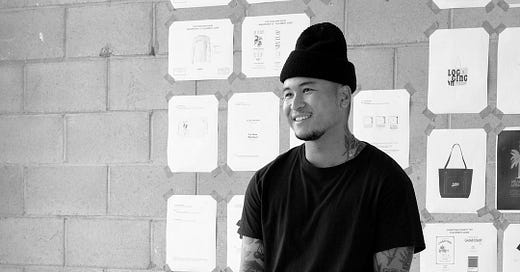Wish You Were Here: How Raeland Mendoza is bringing the world to Edmonton
The co-founder of I'll Call You Tomorrow talks the beautiful chaos of hotel lobbies, the return of so-called "quiet luxury," and his brand's silky new collaboration.
Keep reading with a 7-day free trial
Subscribe to Human Pursuits to keep reading this post and get 7 days of free access to the full post archives.




